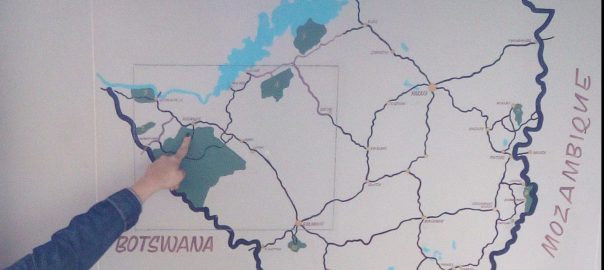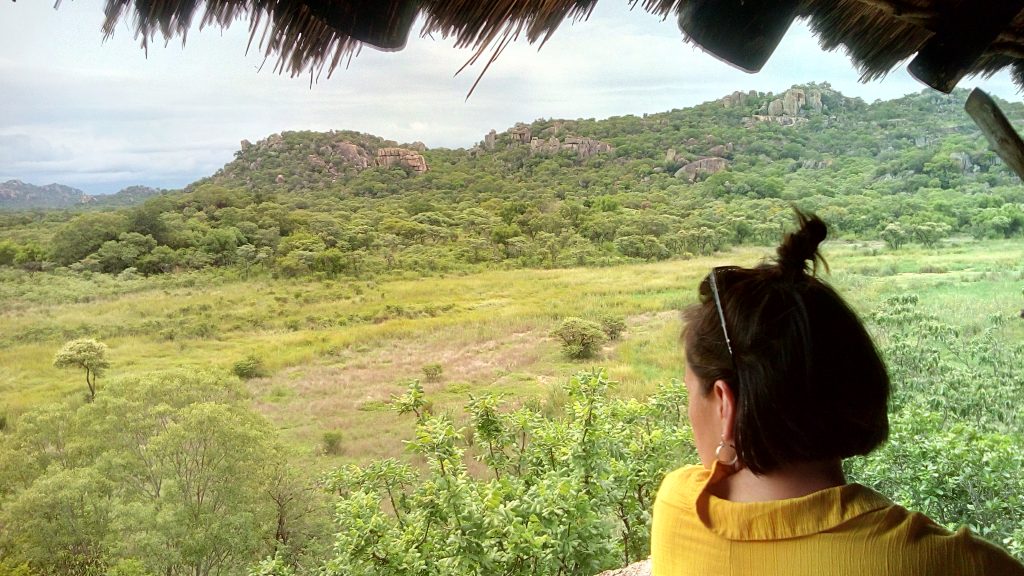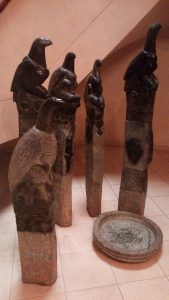 Mrs Jones and I just returned from a whirlwind tour of two of Southern Africa’s renowned gleaming stars in the Tourism industry – Zimbabwe and South Africa.
Mrs Jones and I just returned from a whirlwind tour of two of Southern Africa’s renowned gleaming stars in the Tourism industry – Zimbabwe and South Africa.
The contrast in service between the two, was in my opinion, palpable. Yet in the case of one, there is really no reason for the industry to be lackadaisical or to think that it can rest in its laurels. In fact if anything, it really needs to reconsider itself and come to the realisation that to maintain a position and remain appealing it needs to pull itself up by its bootstraps.
As a consumer or customer it is easy to be critical.
The context in which tourism operators function is tricky and subject to many variables. This is part of the challenge of an industry that can be very susceptible to regional politics, climate and and the general state of the world economy however on one subject we must agree. If you train your staff well; sensitise them to what matters to customers and then ensure that standards are maintained then you’re potentially always ahead of the curve.
After putting the decision off for many years, we finally made the decision to visit South Africa and Zimbabwe for a two week stint over the Christmas and New Year’s period. Part of the decision was new adventure, and part filial duty to the memory of my parents. The booking was made well ahead of the revelation that there was to be a political leadership change.
I’ll start by saying that I cannot recommend one of the middle east carriers as a service route into Africa unless you travel via a premium class or unless you absolutely have to.
Neither Emirates nor Qatar Airways cabin crew seem to appreciate that long haul back to back flights often mean that passengers want to sleep and should not be woken up for meals or snacks. It is almost as if there is determined belief that passengers must eat when artificially designated meal times on the flight are defined. On long haul legs to and from Johannesburg to Dubai and Doha we experienced and witnessed more than one occasion when an overdetermined cabin crew member deliberately woke slumbering passengers to offer them food. You should also be aware that Emirates and Qatar Airways run lesser quality aircraft on this route unlike the impressive A380, a double-deck, wide-body, four-engine jet airliner manufactured by European manufacturer Airbus – currently the world’s largest passenger airliner. A380’s are used by both carriers on the London, UK routes.
When we arrived in Johannesburg we were required to transfer to an Airlink flight and at the O R Tambo airport we fully waited for around twenty minutes before someone arrived to do the transfer. This despite the fact that there were three counters and other carriers had plenty of staff. We can only conclude that the early hour (around 630am) was the cause for this. While the staff that eventually showed up were effective, their friendliness left something to be desired. We actually had more cooperation and friendliness from the immigration official.
We availed ourselves of the use of one of the BIDVEST lounges in the O R Tambo international departures lounge thanks to PriorityPass and while the amenities were on a par with many other lounges across the globe, the staff were slow moving, inattentive and almost reluctant to provide any decent service. For the most part they seemed to consume their time, studying their phones, chatting with one another or just being absent.
The staff aboard the Airlink flight were immaculately presented, efficient and professional. Just as one would expect. This flight JNB – BUQ is a relatively quick one but the staff were on the ball and got what they needed to get done fast and effectively. They did not hesitate to make recommendations to indecisive passengers and were a dream when compared to the service we had had up until this point.
Arrival at Joshua Nkomo airport was as to be expected. A mixture of the modern and the old. Visa receipts are computer printed, passports are digitally scanned but the actual visa in the passport is handwritten! This means that non Zimbabwean passport holders wait ages to have their visas issued. After what was the best part of an hour we eventually cleared immigration, had to have our luggage x-rayed by customs and then made it to the car hire counter.
The Europcar counter service was great. It was old school, with a lot of written paperwork and the internet was down so the credit card deposit charge was done with a zip-zap machine but the staff member on duty was very pleasant and friendly.
We found the service in the various stores and cafes around Bulawayo to be on a par with what we would expect in the US. The difference is that for the most part the Bulawayo staff were a little friendlier. In a country wracked with leadership corruption, broken governance and scary economics it is always surprising to experience a mostly upbeat sentiment among the citizenry.
A journey out to the Matopos National Park presented itself with an astonishing mix of the high tech and the manual. We were required to complete a book based register but our park entry fee was accepted by debit/credit card machine. The staff were friendly and being checked upon by each other. Every fee paying location had an official, a parks warden and a policeman. This in my mind was one way to ensure that the necessary checks and balances were in place to avoid graft – but at what price – employment for the masses? Every subsequent meeting with a National Parks employee was a good experience, they asked for no money, simply inspected our tickets and permits and gave us advice when asked for it. Friendly smiles were offered aplenty especially if you commiserated regarding the heat or merciless Southern African sun beating down on them.
To fill up with fuel we need to stop at a VUZA petrol station on our way out of town. With fuel in limited supply, finding a working petrol station was a bit of a crap shoot but the taff were always convivial and the stations are full service which is a novelty when compared with the rest of most of the world. I would also add that often we found that only one pump worked even when there was a number of pumping stations in situ.
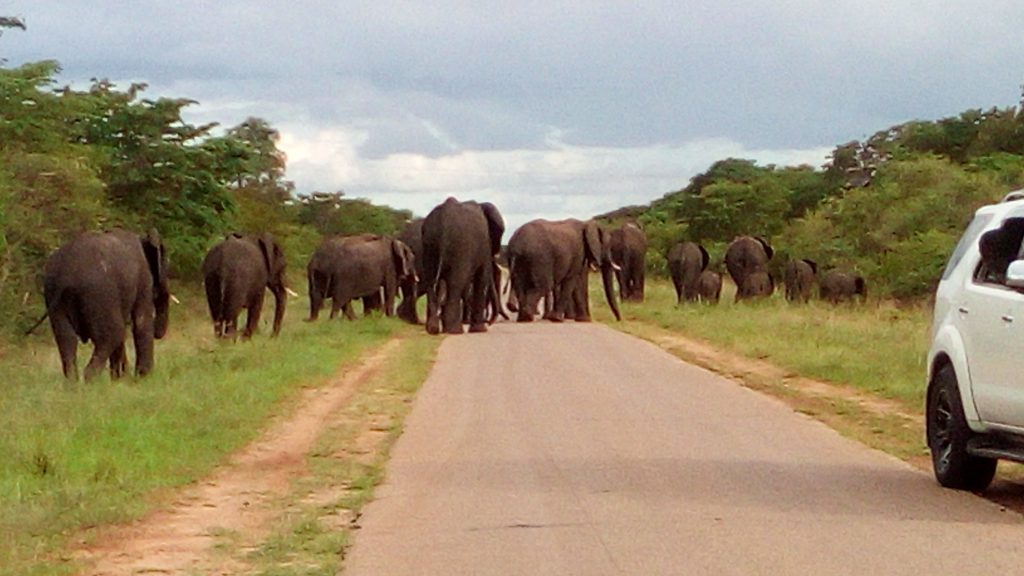 Our journey out of the city on to Hwange Game Park was interrupted by a toll booth on the Victoria Falls road. Here we again encountered friendly staff, dealing with long queues, searing heat and tricky technology. The liquidity in the ZImbabwean economy has almost everyone paying by debit card even for the toll fee of USD2 for a toll fee and so the banks and government are winning but the citizens, tourists and service providers are simply having to work with the system. This also means that very few transactions escape the scrutiny of ZIMRA – everyone is getting their cut! We paid our toll by cash which expedited our passage and was no doubt a novelty with two crisp washington bills.
Our journey out of the city on to Hwange Game Park was interrupted by a toll booth on the Victoria Falls road. Here we again encountered friendly staff, dealing with long queues, searing heat and tricky technology. The liquidity in the ZImbabwean economy has almost everyone paying by debit card even for the toll fee of USD2 for a toll fee and so the banks and government are winning but the citizens, tourists and service providers are simply having to work with the system. This also means that very few transactions escape the scrutiny of ZIMRA – everyone is getting their cut! We paid our toll by cash which expedited our passage and was no doubt a novelty with two crisp washington bills.
We stopped at a private camp in the concession on the way to the Safari Lodge and were met by well presented and friendly staff at the Ivory Lodge. We stopped there to visit with a friend who was staying there. Nestled amongst indigenous forests, the locale was idyllic and the superior service was aligned with what I had historically come to expect. Staff were keen to offer refreshment, invited one to relax and would have near turned themselves inside out if one had asked. Personal questions were not asked, staff did not fawn and were not gushing with faux exuberance – the service was aligned with the role they performed.
If the kind of service we received here, was what we could expect elsewhere, it would be no surprise to find that local and foreign tourists would be delighted.
At the Hwange Safari Lodge and at the Hwange National Parks Main Camp, unfortunately, the same was not true. At the Safari Lodge there seemed to be a shortage of staff. Most of the staff were twenty somethings and the older staff who were possibly more tenured, seemed stressed or exhausted. Only Safari Lodge employee stands out – his name – Confidence – actually aligned with his demeanor. He knew us by name and made best efforts to accommodate us in our relatively simple needs. In fact, is consciousness of us as guests translated into his calling us out on our last day by wondering where we were for dinner the preceding evening. We had dined at a competing resort in the concession.
I could continue but I just realised that actually the days that followed pretty much mirrored these first 5 days. 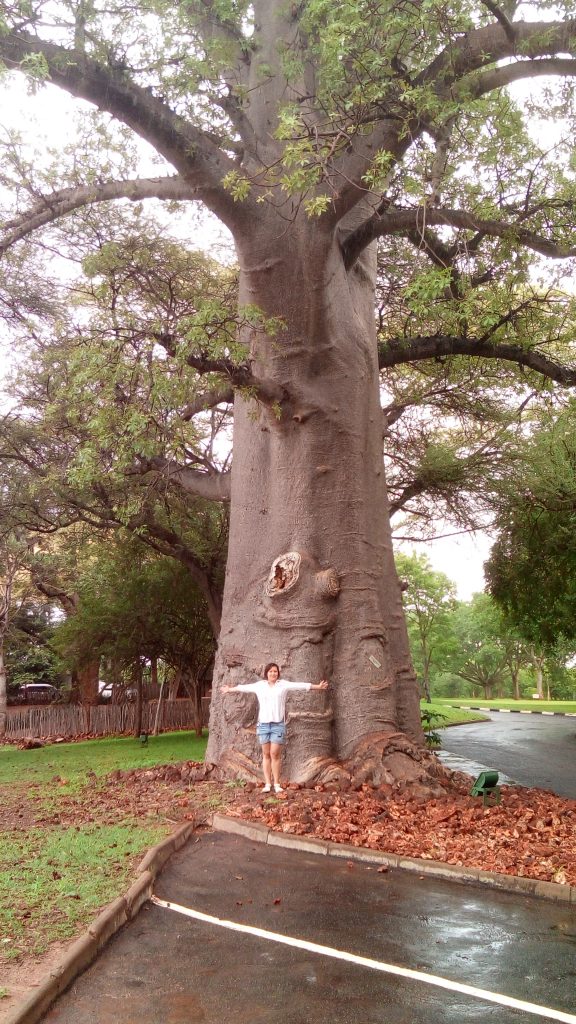
It is difficult to compare the current situation with what one believes one might have experienced in the past however one thing is clear. A smile and friendliness makes up for a lot in the overall experience. Being present and attentive is important especially if there are guests around. Clustering like sugar ants and being social among your colleagues when you are in the service industry is a big no-no when you have customers in attendance. When customers feel neglected they spend their precious money elsewhere unless you have something to offer that is distinctive, unique and highly sought after.
We’ve traveled to many places and experienced many sights and people and though the vistas, architecture, natural wonders and countryside are often differentiators, the people are too. We know what good service looks like, we also know when we feel neglected. It is important that tourism operators and staff be aware that the world is smaller and visitors have more and more choices – they will put up with tired amenities, unreliable electricity, water and potholes but not shoddy service.
Those operators that provide exemplary service despite being surrounded by unpredictable and unreliable infrastructure will be the ultimate winners no matter where they are in the world.
